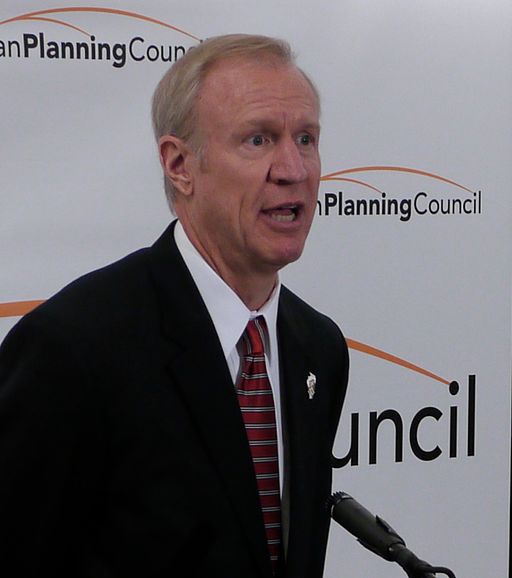When talking pensions on the campaign trail early in 2014, Bruce Rauner said that new hires, current workers and retirees all would need to be on the receiving end of pension benefit cuts.
But Rauner has softened that stance in recent months; the Illinois governor now says the benefits accrued by current workers and retirees need to be protected.
From NBC Chicago:
[Rauner remarked] that it’s most important to “protect what is done—don’t change history. Don’t modify or reduce anybody’s pension who has retired, or has paid into a system and they’ve accrued benefits. Those don’t need to change.”
[…]
“What we should change is the future—the future accruals, the future benefits for future work,” he said, according to the Chicago Sun-Times. “That is constitutional. It’s also fair and appropriate for the taxpayers and the workers themselves.”
“Hopefully (the state Supreme Court) will give us some feedback that will help guide the discussion for future modifications as appropriate for the pensions,” noted Rauner.
Rauner’s website has also been updated accordingly and clarifies his official stance further. He is still pushing for a switch to a 401(k)-style system, but he wants to keep current retirees insulated from any changes:
We must keep our promise to current retirees, but we put all government workers at risk by continuing to promise a pension no one can afford.
[…]
We must boldly reform our pension system. To do that, we can:
* Ensure pay and benefits do not rise faster than the rate of inflation.
* Eliminate the ability of government employees to receive massive pay raises before they retire just to increase their pension.
* Cap the current system and move towards a defined contribution system.
The change in sentiment is perhaps due to a circuit court ruling late last year that overturned the state’s pension reform law, which made it more unlikely that pension reforms can legally come in the form of benefit cuts for retirees.
The law is currently being heard in the halls of the state Supreme Court.
It could also be that Rauner, since taking office and taking the temperature of fellow lawmakers, is now more in-tune with the political realities of steep pension cuts, and doesn’t see the worth in pushing an unpopular policy if it has little chance of coming to fruition.
By Steven Vance [CC-BY-2.0 (http://creativecommons.org/licenses/by/2.0)], via Wikimedia Commons









